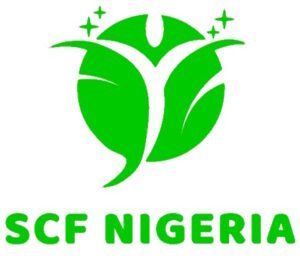Implementing the SCF
Non-profit organizations (NGOs) tackle many of society’s vexing problems that businesses ignore and government struggles to address. However, they have long relied on a donor model for survival. But many are now turning to self-funding revenue models to break that perpetual dependency model. The Sustainable Communities FrameworkTM (SCF), developed by National Commonwealth Group, Inc. (a U.S. based non-profit economic development think tank), was developed to provide a broad-based revenue model for many non-profit organizations simultaneously.
The SCF is being implemented on a world-wide basis by the Sustainable Communities Foundation (SCFndn), another U.S. based non-profit economic development organization that owns the SCF and its companion programs. SCFndn has contracted the Michael Sauvante Care Foundation, a Nigerian non-profit, non-political organization, to manage the implementation of the SCF in Nigeria.
The program can inject a considerable amount of resources into a local economy, both as Naira and a state-based local vouchers. The following information details how SCF will be deployed. SCFndn will partner in each state with a consortium of non-profit partners. Those partners will determine the priorities, programs, and implementation strategies in their respective states. The premise is that the citizens of a state know best what their problems are and what they need. MSCF will work with those partners to provide them with the tools and system supplied by SCFndn for carrying out those goals.
Money is the key requirement to achieve most of those goals. That will be provided in both Naira and a state-based voucher (see the 4 minute video on the home page and this more detailed article Money – It’s Not What Most of Us Think). That requires a new kind of financial ecosystem in the form of a voucher bank called Universal ExchangeTM (UNIEX).
The voucher bank introduces the most significant new element in the financial ecosystem that we all currently live under, and its impact is game changing. The role and impact of the vouchers it will issue cannot be overstated and are the key to fundamentally changing things for the better. This program has been modeled on successful programs of the past which have yielded dramatic positive results for the communities that have used them. We have captured a number of examples in this article Complementary Currencies In Use.
To implement the SCF in each state, the following arrangements will be made:
A Brief Explanation of the State Implementation Components
State SCF Partner
SCFndn will partner with a State SCF Partner (SP) which is a consortium of non-profit organizations enrolled to carry out the SCF mission in each state. The SCF will be managed locally on behalf of the SP by various District Offices. The objective is to assemble experts related to the most pressing problems of the state and to create task groups that can formulate solutions and oversee their implementation. The banking element of this ecosystem should generate substantial financial resources that will be used by this partnership to address the problems identified by the consortium.
Our Voucher Bank
Our Voucher Bank represents the key mechanism that enables much of the SCF program. It does so by issuing a “people’s voucher,” based on historical examples where citizens bootstrapped their own economies without help from government or others. Each state will have its own dedicated voucher, used to address many of the major problems for which no other comprehensive solutions are available.
District Offices
In order to implement the SCF statewide, the SCF State Partner needs to establish various district offices that will be responsible for implementing the SCF in their district.
Local Government Partners
SCFndn will partner with local government partners in the form of counties, cities and townships, to deploy the SCF in their communities and help drive the adoption of the state’s voucher.

